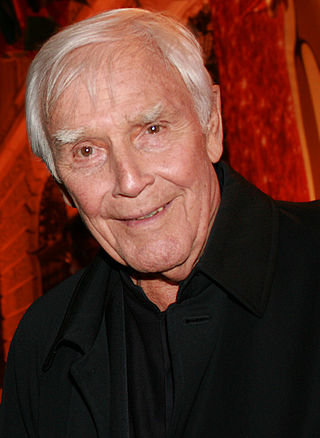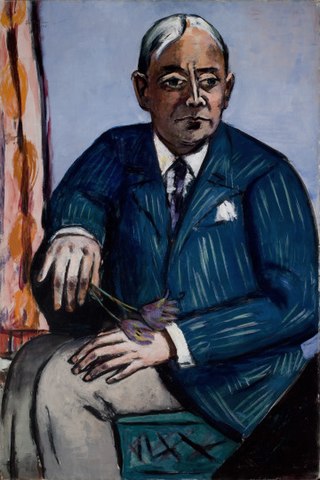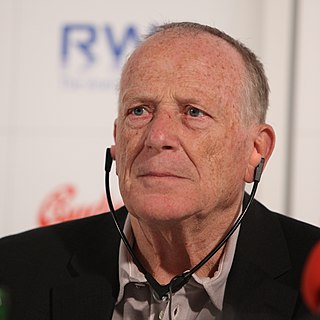Wolfgang Becker may refer to:
- Wolfgang Becker (director, born 1910) (1910–2005), German film director and film editor
- Wolfgang Becker (director, born 1954) (1954–2024), German film director and screenwriter
Wolfgang Becker may refer to:

Tom Tykwer is a German film director, producer, screenwriter, and composer. He is best known internationally for directing the thriller films Run Lola Run (1998), Heaven (2002), Perfume: The Story of a Murderer (2006), and The International (2009). He collaborated with The Wachowskis as co-director for the science fiction film Cloud Atlas (2012) and the Netflix series Sense8 (2015–2018), and worked on the score for Lana Wachowski's The Matrix Resurrections (2021). Tykwer is also well known as the co-creator of the internationally acclaimed German television series Babylon Berlin (2017–).

Helmut Käutner was a German film director active mainly in the 1940s and 1950s. He entered the film industry at the end of the Weimar Republic and released his first films as a director in Nazi Germany. Käutner is relatively unknown outside of Germany, although he is considered one of the best filmmakers in German film history. He was one of the most influential film directors of German post-war cinema and became known for his sophisticated literary adaptations.
Wolfgang is a German male given name traditionally popular in Germany, Austria and Switzerland. The name is a combination of the Old High German words wolf, meaning "wolf", and gang, meaning "path", "journey", "travel". Besides the regular "wolf", the first element also occurs in Old High German as the combining form "-olf". The earliest reference of the name being used was in the 8th century. The name was also attested as "Vulfgang" in the Reichenauer Verbrüderungsbuch in the 9th century. The earliest recorded famous bearer of the name was a tenth-century Saint Wolfgang of Regensburg. Due to the lack of conflict with the pagan reference in the name with Catholicism, it is likely a much more ancient name whose meaning had already been lost by the tenth century. Grimm interpreted the name as that of a hero in front of whom walks the "wolf of victory". A Latin gloss by Arnold of St Emmeram interprets the name as Lupambulus.

Wolfgang Becker was a German film director and screenwriter, best known to international audiences for his work Good Bye, Lenin! (2003). He was a co-founder of the production company X Filme Creative Pool, which produced his first successful feature film, Das Leben ist eine Baustelle, in 1997.

Joachim "Blacky" Fuchsberger was a German actor and television host, best known to a wide German-speaking audience as one of the recurring actors in various Edgar Wallace movies. In the English-speaking world, he was sometimes credited as Akim Berg or Berger.
Wolfgang Georg Louis Liebeneiner was a German actor, film director and theatre director.
Becker is one of the German-language surnames, along with Bäcker and Baecker, that derive from the root, which refers to baking. The surname began as a name for a baker. In northern Germany, it can also derive from the word Beck for Bach to denote origin.

Gustav von Wangenheim was a German actor, screenwriter and director.
Luth, Lüth or LUTH may refer to:

The surname "Wagner" is derived from the Germanic surname Waganari, meaning 'wagonmaker' or 'wagon driver.' The surname is German but is also well-established in Scandinavia, the Netherlands, eastern Europe, and elsewhere as well as in all German-speaking countries, and among Ashkenazi Jews.
Bottcher or Böttcher is a German surname. Notable people with the surname include:

Myriam Bru is a French retired actress and the wife of German actor Horst Buchholz, to whom she was married from 1958 until his death in 2003. She appeared in 16 films between 1952 and her marriage in 1958, when she retired from acting to raise her two children, one of whom is German actor Christopher Buchholz.

Ludwig Berger was a German-Jewish film director, screenwriter and theatre director. He directed more than 30 films between 1920 and 1969. Berger began working in the German film industry during the Weimar Republic. At Decla-Bioscop and later UFA he established a reputation as a leading director of silent films. He emigrated to Hollywood, but was unable to establish himself and returned to Europe. He subsequently worked both in France and Germany. He was a member of the jury at the 6th Berlin International Film Festival.

Wolfgang Kohlhaase was a German screenwriter, film director, and writer. He was considered "one of the most important screenwriters in German film history", and was one of the GDR's most well-known and prolific film screenwriters. Kohlhaase was awarded the Honorary Golden Bear at the 2010 Berlin International Film Festival.
Das Kriminalmuseum was a German television series. It ran from 1963 to 1970 on ZDF and was one of its first programs. Each episode began with a tracking shot through an unspecified crime museum, stopping at one of the displays, whose story was then told. Each episode was between 60 and 75 minutes long and featured different actors as the criminal commissioner. The best known was Erik Ode, who in 1969 moved to Der Kommissar, appearing in 97 episodes. The theme music of the series was written by German composer Martin Böttcher, who also composed the complete scores for five episodes.

Hello, My Name Is Cox is a 1955 West German crime comedy film directed by Georg Jacoby and starring Johannes Heesters, Claude Borelli and Kurt Meisel. It was shot at the Bavaria Studios in Munich and on location in Brussels and Antwerp. It is an adaptation of the novel Gestatten, mein Name ist Cox by Rolf Becker and Alexandra Becker.
Events in the year 1954 in Germany.
Events in the year 1966 in Germany.
Wolfgang Becker was a German film director and film editor.

The Phantom of the Big Tent is a 1954 West German thriller film directed by Paul May and starring René Deltgen, Angelika Hauff and Ilse Steppat. It was shot at the Spandau Studios in Berlin, with location filming taking place at a circus in Spandau. The film's sets were designed by the art directors Hans Kuhnert and Theo Zwierski.